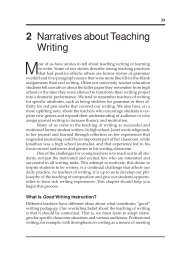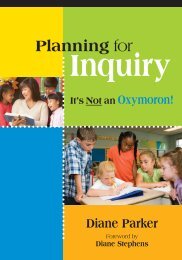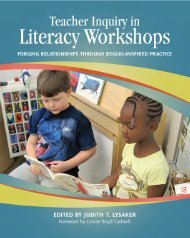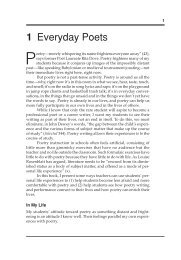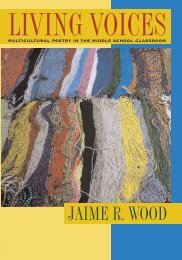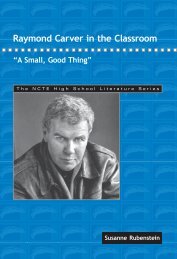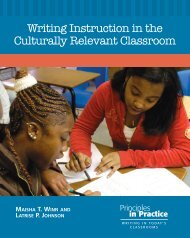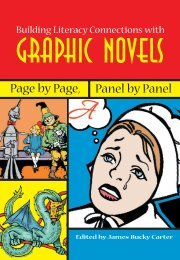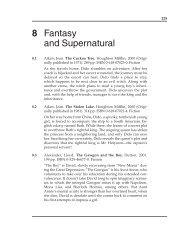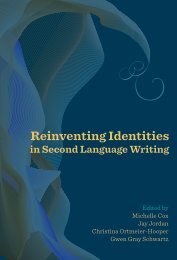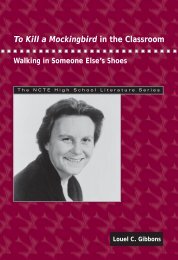reading Shakespeare
reading Shakespeare
reading Shakespeare
Create successful ePaper yourself
Turn your PDF publications into a flip-book with our unique Google optimized e-Paper software.
10 Vocabulary: Understanding Words<br />
MERCUTIO: Come, sir, your passado.<br />
ROMEO:<br />
⎡They fight.⎤<br />
Draw, Benvolio, put down their weapons.<br />
⎡Romeo draws.⎤<br />
Gentlemen, for shame forbear this outrage!<br />
Tybalt! Mercutio! The Prince expressly hath<br />
Forbid this bandying in Verona streets.<br />
Hold, Tybalt! Good Mercutio!<br />
⎡Romeo attempts to beat down their rapiers.<br />
Away, Tybalt!<br />
MERCUTIO: I am hurt.<br />
BENVOliO:<br />
Tybalt stabs Mercutio.⎤<br />
⎡Tybalt, Petruchio, and their followers exit.⎤<br />
A plague o’ both houses! I am sped.<br />
Is he gone and hath nothing<br />
What, art thou hurt<br />
MERCUTIO: Ay, ay, a scratch, a scratch. Marry, ’tis enough.<br />
ROMEO:<br />
Where is my page—Go, villain, fetch a surgeon.<br />
⎡Page exits.⎤<br />
Courage, man, the hurt cannot be much.<br />
MERCUTIO: No, ’Tis not so deep as a well, nor so wide as a church<br />
door, but ’tis enough. ’Twill serve. Ask for me tomorrow,<br />
and you shall find me a grave man. . . . A plague o’<br />
both your houses! . . . Why the devil came you between<br />
us I was hurt under your arm.<br />
Though some students are pleased to learn that what the editors<br />
saw embedded in the dialogue they saw too, others are ready to disagree<br />
with the professionals. To well-meaning editors everywhere I would ask<br />
in the name of <strong>Shakespeare</strong>’s youngest readers and their teachers, Why<br />
the devil come you between us and the text One of the reasons why we so<br />
need <strong>Shakespeare</strong> is because he so needs us. More than three centuries<br />
before a literary critic would insist that “The literary work exists in the<br />
live circuit set up between reader and text” (Rosenblatt 24), and more<br />
than three centuries before a biologist would claim that language is “like<br />
nest-building or hive-making, the universal and biologically specific activity<br />
of human beings” (Thomas 89), this poet-playwright understood<br />
that language and meaning must be under constant construction.



